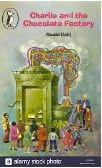Spirituality at Powerstock School
Spirituality is not something we can see or touch or hear; it is something we feel inside ourselves. It is about wonder of our world and ourselves, asking questions, inspiration and being aware of something ‘bigger’ outside of ourselves.”
Children at school have opportunities to grow in their spirituality in several ways:
Spiritual Capacities: recognition that all human beings are capable of spiritual growth through capacities such as self-awareness,reflection, empathy, imagination and creativity
Spiritual Experiences: ways in which pupils can encounter the spiritual dimension of life
Spiritual Understanding: the need to have developed an understanding to make sense of the spiritual experiences encountered and capacities exercised Spiritual responses: how this experience and understanding impacts on our lives and shapes the way in which we live our lives
Our approach enabling children to develop their spirituality is summarised in these four areas:
Self
Spiritual learners become increasingly aware of the concept of self – the inner person and the way that this shapes an individual’s perception of themselves as a unique human being. Spiritual learners reflect on the relationship that they have with their sense of being a unique person.
Others
Spiritual learners become increasingly aware of the concept of others – a growing empathy, concern and compassion for how to treat others. Spiritual learners reflect on how their values and principles affect their relationships with others.
Beauty
Spiritual learners become increasingly aware of the concept of a physical and creative world – a growing relationship with beauty through the ability to respond emotionally to experiences of the wonder of the natural world and the results of human creativity. Spiritual learners explore their understanding of beauty and the affect this has on their perception of and relationship with the world.
Beyond
Spiritual learners become increasingly aware of the concept of the beyond – a growing relationship with the transcendental and the ability to explore experiences beyond the everyday.
Spiritual learners search for meaning in their very existence and their place in the greater scheme of things.
How is Spirituality Nurtured?
Children’s spiritual development is fostered through all aspects of our provision. It is about the relationships and the values that we consider to be important, as well as the development of knowledge, concepts, skills and attitudes. We give children opportunities to:
- Express personal beliefs and compare views with others, sharing feelings and opinions through discussions and stories.
- Begin to develop their own system of beliefs which may or may not include religious beliefs.
- Experience a love of learning through rewarding their enthusiasm and by encouraging exploratory play and learning.
- Reflect upon the world around them and show a sense of awe and wonder towards aspects of the natural world or human achievement.
- Reflect on the situations of others through role play, stories and the expressive arts.
- Experience a range of stories, music, art, drama and dance
What is the Role of the School Community?
All members of the school community have a responsibility for helping to nurture children’s spiritual development.
School staff can do this through:
- Establishing and maintaining a partnership between pupils, parents and staff; recognising and respecting the faith background of the children and their families;
- Taking part in, and supporting, collective acts of worship;
- Being good role models in their conduct towards other members of the community;
- Promoting an attitude of respect for other people and for others’ views;
- Nurturing consideration for and generosity towards others.
- Drawing on the experiences of pupils and their families during religious education lessons and beyond;
- Recognising and being constantly aware of the needs and backgrounds of each individual pupil;
- Being willing to develop their own knowledge and understanding of the Christian faith and the faiths of others;
- Having a positive attitude to the value of spiritual education.
Pupils can do this through:
- Taking an active part in acts of collective worship;
- Participating in activities which promote the skills allowing them to engage in examination of and reflection upon religious belief and practice;
- Conducting themselves towards others considerately, in line with the code of conduct;
- Respecting the views and beliefs of others.
Parents can help through:
- Adopting a positive attitude to the value of spiritual education;
- Supporting the school’s Christian ethos and acts of community worship such as assemblies and church services;
- Respecting the views and beliefs of others.



































